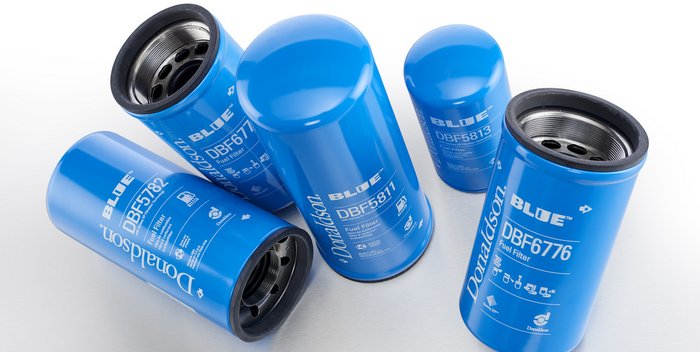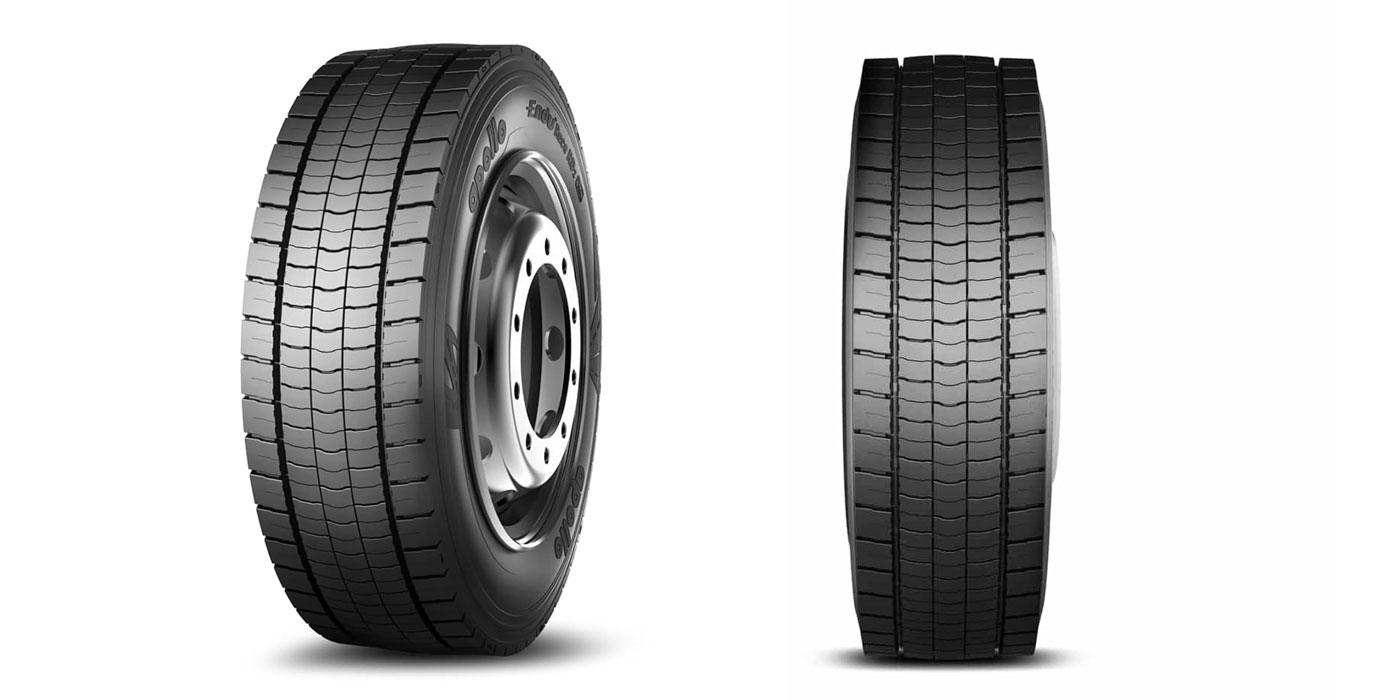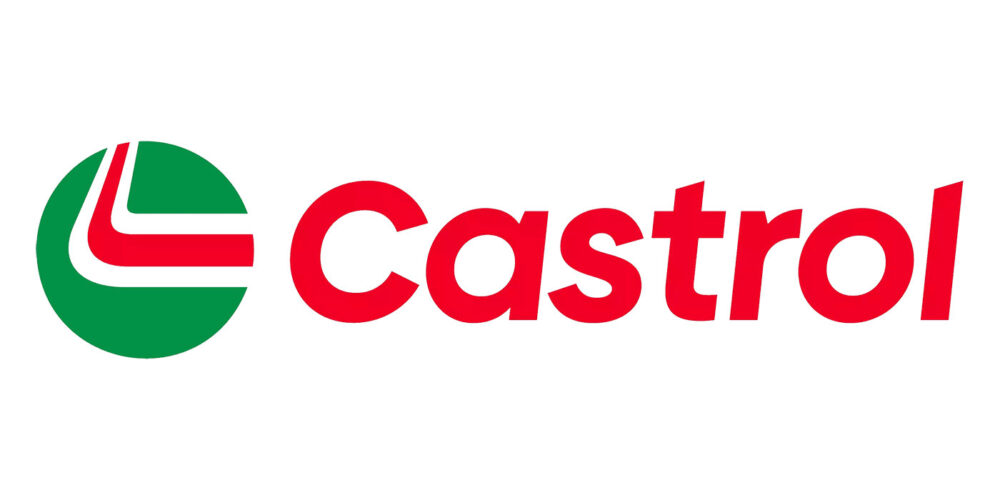Fuel is the lifeblood that runs through the heart of your tractor—the engine—sending power into the truck’s component circulatory system. The key to your equipment’s on-highway heart health lies in the engine getting plenty of exercise as it rolls towards its million-mile goal, and to make sure it’s fed the cleanest diesel fuel possible. The fuel filter plays an important role in ensuring that your engine keeps pumping efficiently. Like all components in today’s trucking environment, fuel filters have evolved to meet the growing needs of today’s hard-working engines.
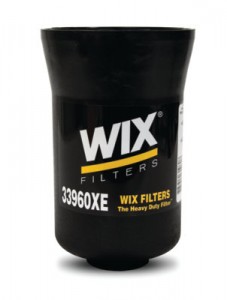 “Fuel systems have changed and filters have evolved to protect critical components,” explained Donald Chilton, vice president of product management for WIX Filters, which offers more than 500 different fuel SKUs for heavy-duty trucks and equipment. “Cellulose is a filtration standard media and works very well for a lot of applications. As the protection need has increased, the medias have evolved as well. More advanced medias today are multi-layered composites offering efficient performance while stripping water out. Given the pressures at injectors today, water is just as damaging to an injector as actual dirt.”
“Fuel systems have changed and filters have evolved to protect critical components,” explained Donald Chilton, vice president of product management for WIX Filters, which offers more than 500 different fuel SKUs for heavy-duty trucks and equipment. “Cellulose is a filtration standard media and works very well for a lot of applications. As the protection need has increased, the medias have evolved as well. More advanced medias today are multi-layered composites offering efficient performance while stripping water out. Given the pressures at injectors today, water is just as damaging to an injector as actual dirt.”
Tougher emissions regulations have led to engines with high-pressure fuel systems, which require extremely clean diesel fuel and also increase demands on the engine components like fuel filters. Scott Grossbauer, Donaldson Co.’s director of clean fuel solutions, explained:
“The past EPA focus on emissions has driven design changes in engine injection systems that allow for very precise, metered injection of fuel. This gives original equipment manufacturers the opportunity to achieve a better balance of reduced emissions and increased fuel efficiency—translating into more miles per gallon. One of the ways injector manufacturers have helped achieve this balance is by increasing fuel injection pressures. To get the precision needed, fuel is being pressurized to 30,000 PSI and higher. Because of these higher injection pressures, the fuel itself has to be cleaner than ever before. Even the smallest particles, down to 1 to 3 microns, can do significant damage to injectors. As a result, the job of the filter becomes even more critical. It needs to provide the highest level of injector protection, while still reaching its expected service interval.”
Fuel cleanliness is extremely important to fuel injector performance and filtration manufacturers have risen to the occasion.
“In the last 20 years, single layer media applications have evolved from simple glass and cellulose construction to multiple layers of synthetic-polymer nano fibers that further improve field life and water removal efficiency in poor quality fuels,” explained Daniel Stibel, Racor’s fuel filtration product manager. “In the last 10 years, there has been a move to coalescer element designs that utilize four or more special layers to break water-fuel emulsions in biodoesel blends and poor quality fuels, which is normally difficult. In the last few years, Racor medias, for example, have been re-engineered to have low formaldehyde content while retaining all the life and performance features expected of the Aquabloc family of medias.”
Fully synthetic, multilayered media is a big step forward in terms of being able to remove the smallest particles of contamination with high efficiency, explained Cindy Hawkins, global product manager for fuel at Cummins Filtration.
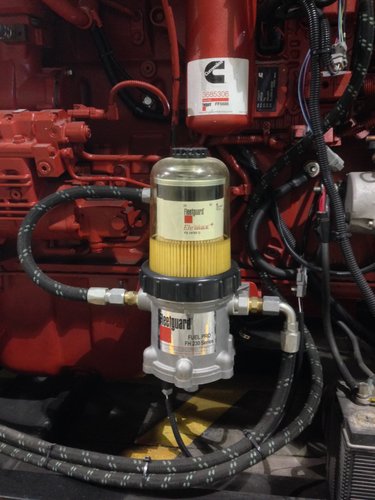 “Efficiency is important to understand,” Hawkins began. “For example, let’s target 4-micron particles. If 100,000 particles enter the filter and 1,333 make it through, then the filter’s efficiency is 98.7%—it removes 4-micron-size particles 98.7% of the time. This type of performance is quite good and typical of our previous-generation media.”
“Efficiency is important to understand,” Hawkins began. “For example, let’s target 4-micron particles. If 100,000 particles enter the filter and 1,333 make it through, then the filter’s efficiency is 98.7%—it removes 4-micron-size particles 98.7% of the time. This type of performance is quite good and typical of our previous-generation media.”
Hawkins noted that today’s fuel filter media take filtration efficiency to another level. The NanoNet technology offered by Cummins Filtration, for example, can remove the same 4-micron particles 99.9% of the time. That 1.2% improvement might seem minor, but in reality, it means that of the same 100,000 particles flowing into the filter, only 100 particles make it through the media. A 1.2% improvement in efficiency is actually a 13-times improvement over traditional filtration.
All fuel filter media improvements seek to increase efficiency in removing particulate from fuel, and many filtration manufacturers are looking to performance above and beyond today’s standards.
“New tests show the performance of filters in dynamic conditions that may include vibration, pulsation and flow variation,” said Veli Kalayci, director of engine liquid products for Donaldson Co., which offers its Donaldson Blue filters featuring Synteq XP media to remove four times more contaminant from fuel. “This testing is becoming an important tool to differentiate filter technology and allows customers to make informed decisions on how to protect fuel injection systems. While protection is a key consideration, fuel efficiency is also affected by the condition of injectors, which makes high-quality fuel filtration even more important from an overall cost of ownership standpoint.

